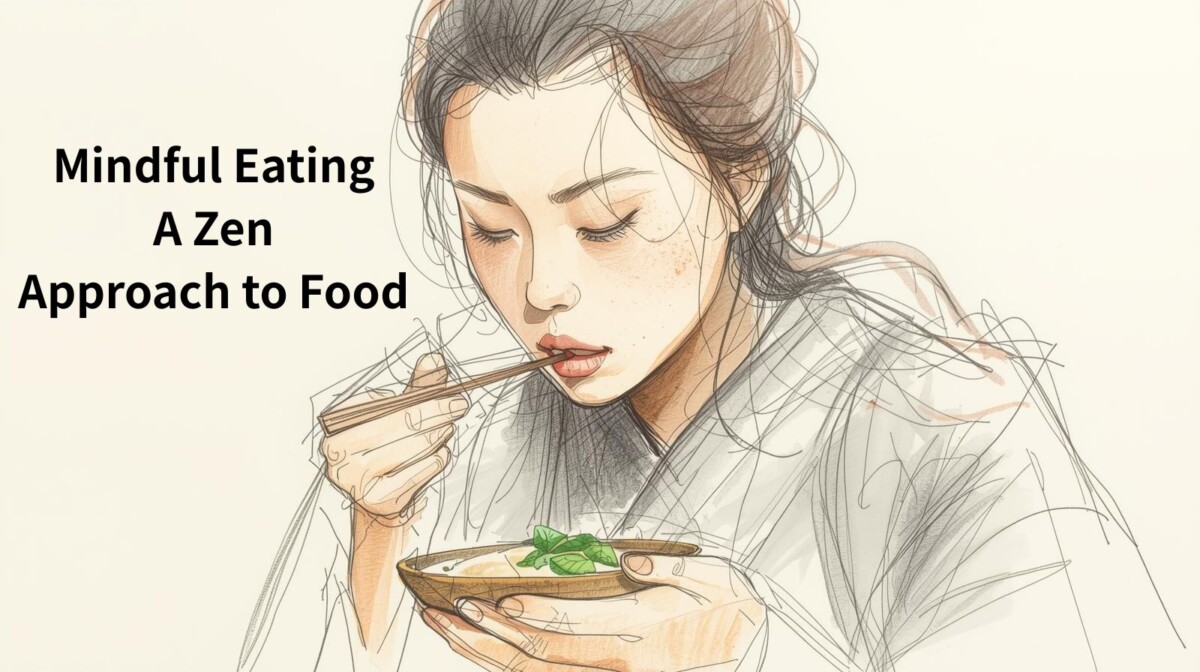
Mindful Eating: A Zen Approach to Food
Introduction
Ever finished a meal and realized you barely tasted it?
You’re not alone. In our fast-paced, dopamine-driven culture, eating has become just another task — something to check off between emails, errands, or Netflix episodes.
But what if eating could be… a meditation?
Welcome to mindful eating, the Zen way — where each bite becomes a gateway to presence, gratitude, and deeper connection with life itself.
What Is Mindful Eating?
Mindful eating means engaging fully with your food — not just with your mouth, but with all your senses, attention, and presence.
Originating from Zen principles of mindfulness, this approach encourages:
-
Slowing down
-
Savoring each bite
-
Respecting the source of your food
-
Listening to your body’s signals
“When you eat, just eat.” – Zen saying
Why a Zen Approach to Food Matters
In Zen, even simple acts like drinking tea or preparing rice can become spiritual practices.
Eating isn’t just about nutrition — it’s about relationship: with the earth, with others, with your own body.
Benefits of mindful eating include:
-
Improved digestion
-
Reduced overeating
-
Greater satisfaction with less food
-
Strengthened gut-brain connection
-
Less emotional eating
5 Zen Practices to Transform Your Eating Habits
1. Begin with Gratitude
Before eating, take a moment to appreciate:
-
The farmers
-
The hands that prepared the food
-
The weather that grew the crops
This primes your mind for presence over consumption.
2. Eat Without Distraction
Yes, that means:
-
No phones
-
No YouTube
-
No doomscrolling
Try eating in silence for at least one meal per day. Think of it as a mini digital detox.
3. Use All Five Senses
Notice:
-
The colors on your plate
-
The aroma of herbs or spices
-
The texture of each bite
-
The sound of chewing
-
The changing flavors on your tongue
This sensory awareness deepens your experience and builds intuitive eating skills.
4. Chew Slowly
Chewing 20–30 times per bite isn’t just old-school wisdom — it:
-
Aids digestion
-
Gives your brain time to catch up with your stomach
-
Teaches patience through repetition (a Zen virtue)
5. Listen to Your Body, Not the Clock
Forget finishing everything just because it’s noon. Instead:
-
Tune in to hunger and fullness cues
-
Eat when you’re truly hungry
-
Stop when you’re 80% full (hara hachi bu, a Japanese practice)
Why Mindful Eating Is Trending Now
-
#SlowFood movement is gaining momentum on Instagram and TikTok
-
“Intentional living” and “low dopamine lifestyle” are hot Gen Z wellness hashtags
-
As remote work rises, so does the craving for rituals and boundaries — eating mindfully is both
Mindful eating is not a diet — it’s a return. A return to your senses, your breath, and your body’s wisdom.
✨ Even the simplest bowl of rice can become a meditation.
Final Thoughts
When you eat mindfully, you’re not just feeding your body — you’re nourishing your awareness.
You become present. Grateful. Whole.
So tonight, when you sit down for dinner, leave your phone in the other room.
Take a deep breath. Smile.
And eat… just eat.
💬 Have you tried mindful eating before? What changed for you? Let us know in the comments — or share a photo of your Zen-inspired meal using #ZenForLife.
📝 Want more mindful living tips? Subscribe to our newsletter at zen-for-life.com
🌿 Want to go deeper into Zen and mindful living?
Explore ZEN for LIFE — a gentle guide to bringing presence, simplicity, and calm into your everyday routine.
Now available on Kindle.
#ZENforLIFE #MindfulLiving #EverydayZen










この記事へのコメントはありません。